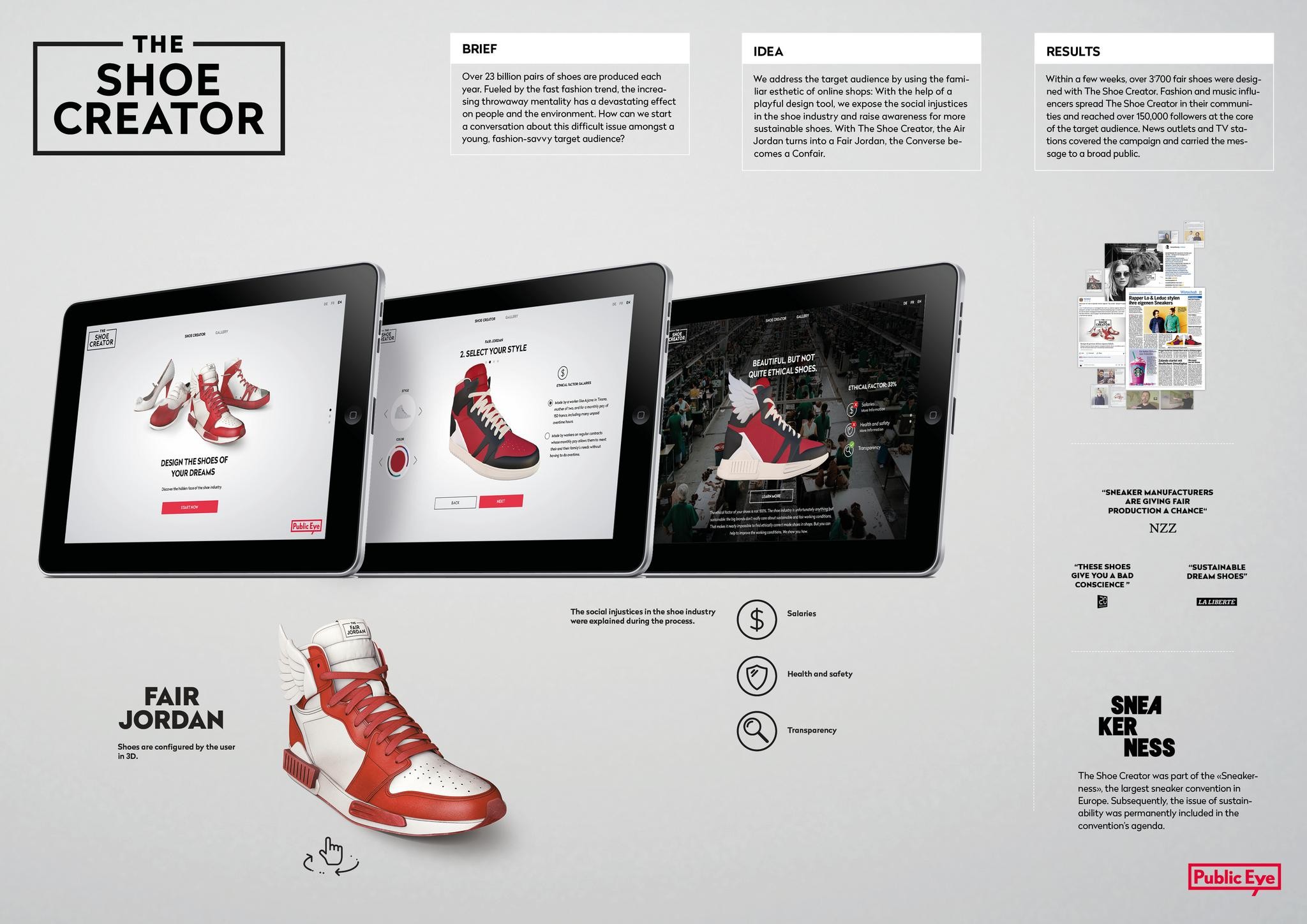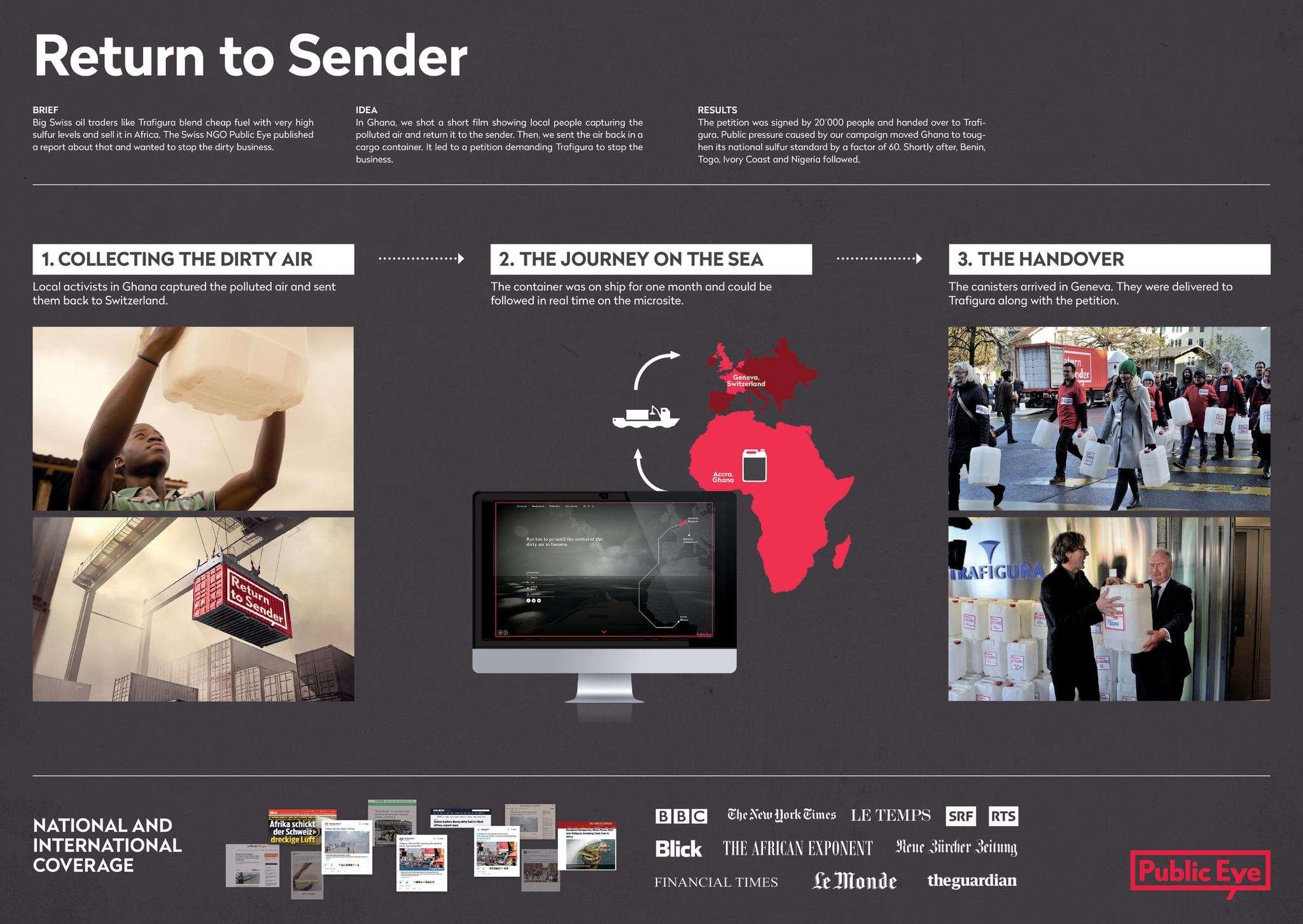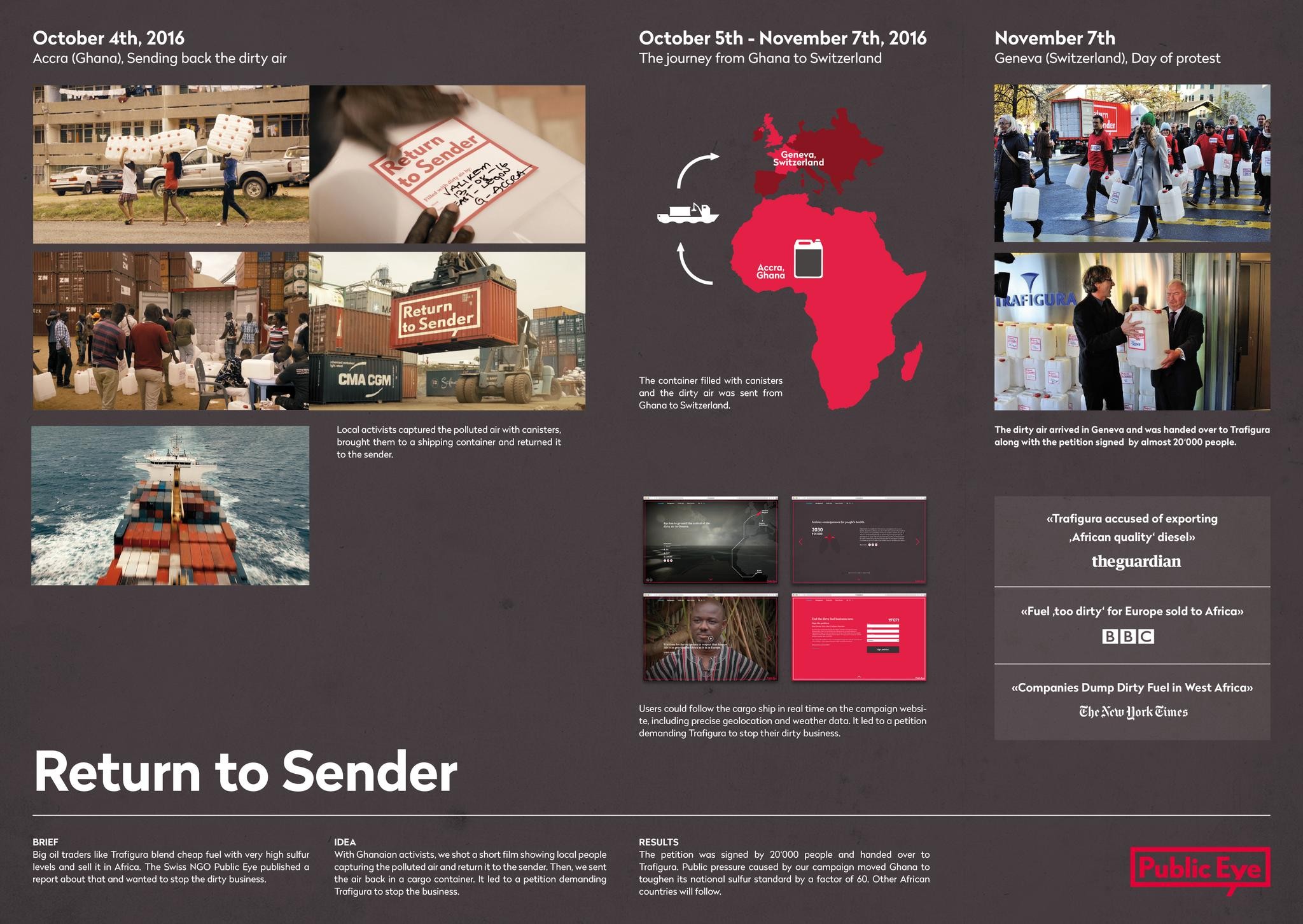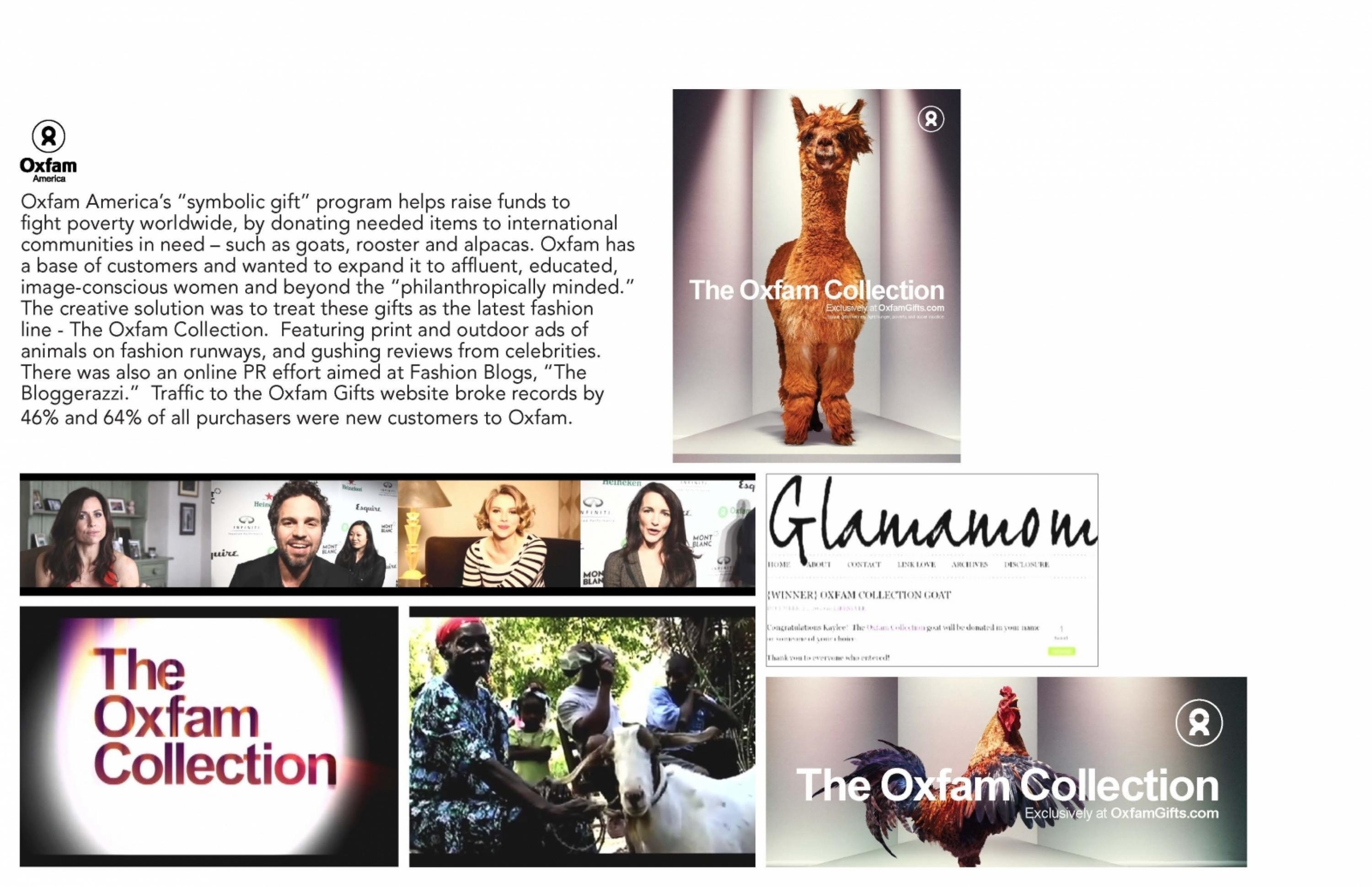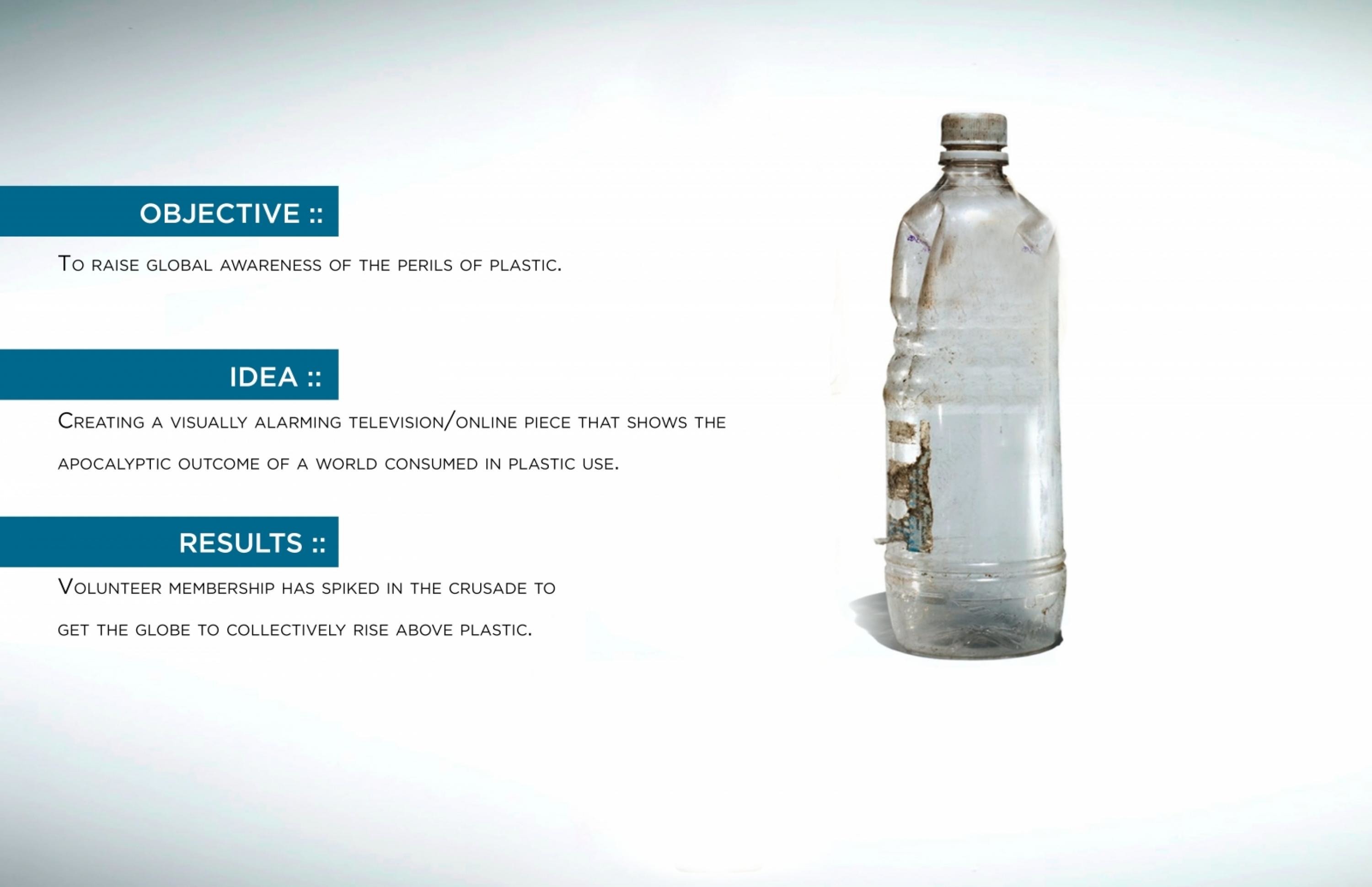Eurobest
Pesticide Portraits
FREUNDLICHE GRÜSSE, Zurich / PUBLIC EYE / 2019
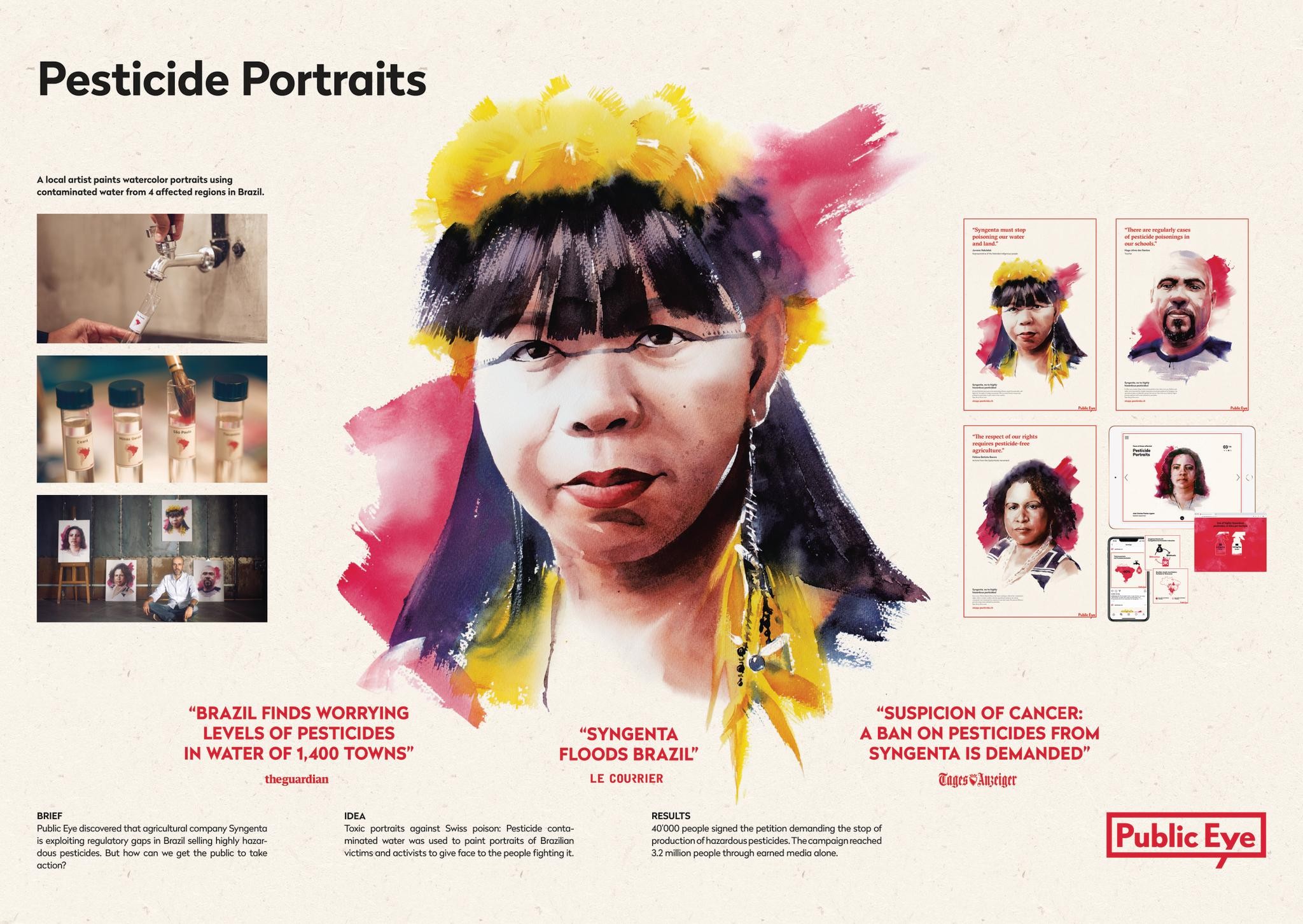
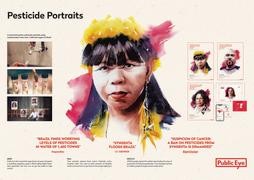
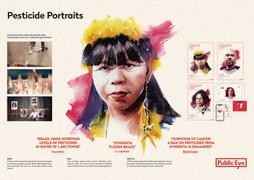
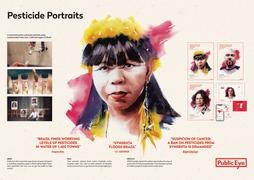
Overview
Entries
Credits
OVERVIEW
Background
In a recently published research paper, Swiss NGO Public Eye sheds light on a business that is as unknown as it is lucrative: the Swiss chemicals group Syngenta exploits regulatory gaps in Brazil to sell highly dangerous pesticides used in agriculture. As a result, the pesticides end up in drinking water and endanger the health of millions of people.
How can we break down the results of a complicated 30-page research paper into an emotional awareness campaign? How can we draw the attention of the general public to this problem and stop Syngenta from selling their most toxic pesticides?
Idea
We created toxic portraits against Swiss poison: Using water contaminated by pesticides, we painted watercolor portraits of Brazilian victims and activists fighting against Syngenta, giving a face to the problem and a voice to those standing up against it. We let them tell their stories and convey their message on a website and on social media, and we appealed the Swiss public to sign a petition calling on Syngenta to immediately stop producing and selling highly hazardous pesticides.
The «Pesticide Portraits» were created together with the Brazilian watercolor painter Renato Palmuti. They are representative of the many activists who fight against the massive use of pesticides in Brazil and in favour of protecting people and the environment.
Strategy
While the investigation in Brazil was still ongoing, it became clear that the NGO Public Eye had discovered a massive problem. It was caused in Brazil, but the responsible company was based in Switzerland. As the political and legal situation in Brazil made it impossible to take action there, the problem had to be adressed on Syngenta’s Swiss hometurf, where the executive decisions are taken and the shareholders reside.
In order to create public pressure in Switzerland, we had to raise awareness in an original way. As Swiss people are very sensitive about water issues, it became obvious that using contaminated water to give a face to the problem made a lot of sense. The campaign would allow us to inform the public and give them the opportunity to become active by signing a petition demanding Syngenta to stop the production and export of highly hazardous pesticides.
Execution
Working closely with Public Eye and the artist Renato Palmuti, we assembled a team in Brazil and gathered water samples. We documented the entire process and returned to Switzerland with the portraits. We revealed the campaign to the Swiss public via social media and website, where the stories of the portraited activists could be explored while signing the petition. After taking part in a public rally against the toxic products of Swiss chemical companies, we confronted Syngenta directly at their global headquarters in Switzerland. We handed them the petition signed by 40’000 people and the portraits, accompanied by a delegation of activists.
All during the campaign, key findings of the initial research by Public Eye were presented on social media, alongside short statements from the activists. That way, the complex subject matter was made accessible and relatable to the Swiss public, who could then take action by adressing Syngenta.
Outcome
The petition demanding to stop the production and export of highly hazardous pesticides was signed by 40’000 people and handed over to Syngenta. 3.2 million people were reached with earned media. After the campaign was launched, the public interest about pesticides in Switzerland increased tenfold. The campaign spurred the ongoing debate about Corporate Responsibility resulting in a popular vote that demands Swiss companies to respect Swiss standards abroad as well. The popular vote is going to be held in 2020.
Similar Campaigns
12 items
